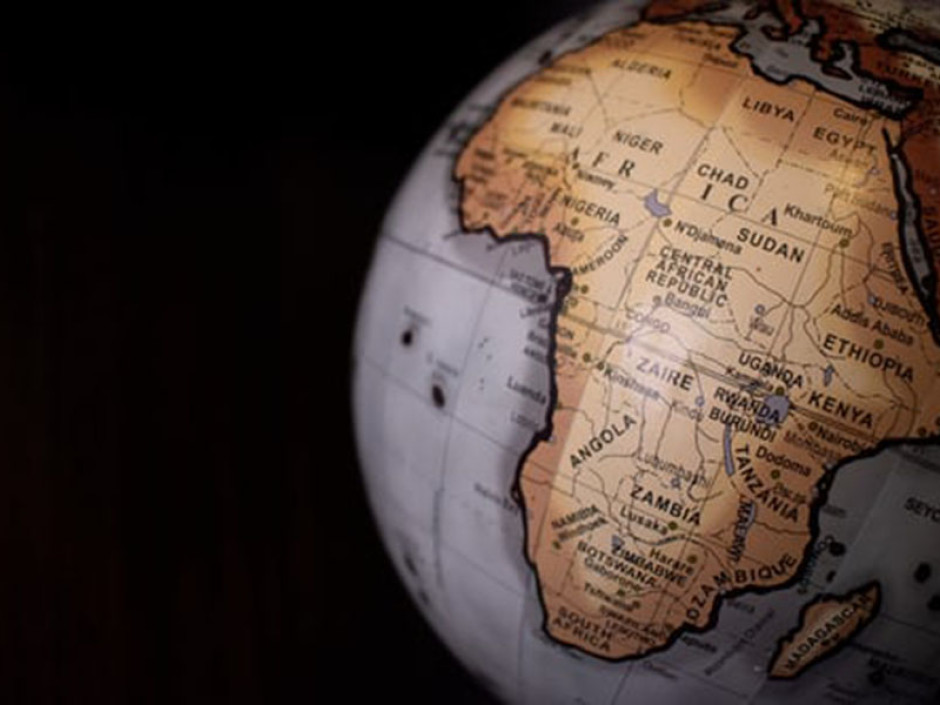The Unintended Impact of Star Power in Do-Gooding
What could possibly go wrong when superheroes try the help others? Do celebrities do more harm than good when they get involved with aid and development? The book Batman Saves the Congo: How Celebrities Disrupt the Politics of Development offers research on the unintended impact of star power.
The term celebrity humanitarianism encompasses the ways in which celebrities continue to deepen their engagement in development and humanitarian causes. Celebrities have a long history of participating in humanitarian and development causes, raising attention and funds for international bodies. This activity increased in the 1980s and 1990s and the UN now even has a dedicated Celebrity Relations Department for its celebrity goodwill ambassadors. Celebrity humanitarians act as spokespersons for non-governmental organizations like Save the Children or for corporate-led campaigns like Product Red . Some celebrities also create their own organizations to focus on specific regions or issues.
A recent and most interesting example of this is Ben Affleck, the American director, producer, and actor, who recently appeared as the superhero Batman. In 2010, Affleck established the organization Eastern Congo Initiative to bring development to the region and to transform how development is practiced.
Our book looks closely at Affleck’s organization to better understand the impact that celebrity humanitarians can have. Our book looks closely at Affleck’s organization to better understand the impact that celebrity humanitarians can have. Celebrity humanitarianism has already been the subject of much debate. While celebrities are useful to organizations for raising money and attention, their presence reinforces some troubling trends. First, there are concerns that celebrities lack expertise: they have been known to simplify issues and demonstrate superficial engagement. Second, sometimes the celebrities draw too much attention to themselves with the result that the cause becomes an afterthought. Third, celebrity humanitarians reflect uncomfortable power dynamics where people in the North speak on behalf and without the consent of people in the South.
Interestingly, Ben Affleck set himself apart from other celebrity humanitarians in a few ways. First, he spent a few years learning about the Congo, traveling to the country, and meeting experts.
He acts as the main spokesperson for his organization but he didn't name it after himself. Eastern Congo Initiative has an office In Goma, Eastern Congo, where they have local staff and partner with grassroots organizations. When he speaks about the Congo, Affleck references the work of these grassroots community organizations.He acts as the main spokesperson for his organization but he didn't name it after himself. Eastern Congo Initiative has an office In Goma, Eastern Congo, where they have local staff and partner with grassroots organizations. When he speaks about the Congo, Affleck references the work of these grassroots community organizations. However, a major critique of celebrity humanitarians concerns the ways in which their participation reflects and reinforces elite practices in development. By being supported by financial and political elites In the West, celebrities can quickly gain a visible platform for their ideas. But if the ideas aren’t sound, celebrities themselves cannot be held accountable. It was Affleck’s initiative that started his organization, not the Congolese. For Affleck and his organization, elite practices are reflected in different ways. First, he hired a strategic management firm to build his organization. Affleck has been invited numerous times to speak in front of the US Congress and other spheres of influence to speak about development in the Congo, centering his narrative of saving Congo (Budabin 2020). And finally, the main topic of four book, these elite practices are shown with celebrity humanitarian’s cozy engagement with other private sector actors.
In our book, Lisa A. Richey and I use the term celebrity strategic partnerships to discuss the ways in which celebrities and their organizations link traditional development actors (like donor agencies) with nontraditional actors like corporations and philanthropists.
We argue that, as elite figures, celebrities shape development practices by convening these strategic partnerships that draw new financial and political capital with the support of old development actors.
We find that celebrity strategic partnerships offer an innovative way to raise awareness and funding for otherwise neglected causes. Our book looks at the strategic partnership called the Kahawa Bora project convened by Affleck and Eastern Congo Initiative with the multinational corporation Starbucks, the US Agency for International Development (USAID), the philanthropic foundation of Howard Buffett (son of Warren Buffett), and other development partners like Caritas Bukavu and Catholic Relief Services. The project ran from 2014 to 2017 and brought in over $6 million as part of an infusion of new actors and funding into the coffee sector of Eastern Congo. The goal was to help smallholder coffee farmer bring their product to a global market. Starbucks, the world’s largest coffee company, packaged the coffee and marketed it for US distribution as “a cup of hope.” As the charismatic spokesperson, Affleck described the success of this project in newspapers, popular magazine, at high level gatherings, and before the US Congress. The public was led to believe this was an exciting new intervention and their support as consumers was key. However, the project was one of many similar development projects doing the same kind of work in the same places. Yet, this elite-biased project became too big to fail, so it continued inefficiently not offering better outcomes to coffee farmers than less-celebritized projects.
However, celebrity strategic partnerships also signal a troubling trend in an environment of unaccountable elite leadership in North-South relations. Affleck’s organization convened the partnership to aid the coffee sector even though ECI had no expertise in coffee production and little knowledge of rural development. The opportunity to raise awareness to the realities of coffee farming and the challenges of development in the Congo was limited. Consumers learned that Starbucks was heroically helping in Congo but little else. As an idea, the collaboration promoted a business model for development, configurations that have few positive impacts at the local level (Richey and Ponte 2021). Affleck as the public “face” carried a distorted and simplified message to mass publics and elite audiences.
Conclusions
Our book asks: Can Batman save the Congo? And the answer is that though celebrity humanitarians are able to bring together important resources for development causes--new actors, funding sources, and innovative solutions—their deepening engagement is leading to greater privatization of development and elite management from North to South with unsettling consequences for workers in the development field and especially the beneficiaries. Celebrities use their star appeal to attract our attention; in the case of celebrity strategic partnerships, we are being sold a mixed message. Rather than mobilizing us to engage in political advocacy to assist Congo, Affleck asked us to buy coffee as part of the “business of development.” But short-term transactions will not save Congo in the long-run and only remakes helping into the “development of business.” Thus, the impact of celebrities in development needs to be taken seriously for these misguided interventions.
This article has first been published by Alexandra Cosima Budabin and Lisa Ann Richey on the Südtiroler Wirtschaftszeitung (SWZ) in July 2021.
One of the authors, Alexandra Cosima Budabin, is a researcher in the Faculty of Design and Art with the Platform Cultural Heritage Cultural Production at the Free University of Bolzano. She received her PhD in Politics from the New School for Social Research in 2012. Her research looks at transnational advocacy, everyday humanitarianism, visual politics, and narratives. Her book is also available for purchase online.
Related Articles
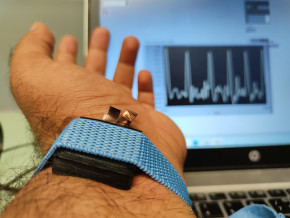
Tecno-prodotti. Creati nuovi sensori triboelettrici nel laboratorio di sensoristica al NOI Techpark
I wearable sono dispositivi ormai imprescindibili nel settore sanitario e sportivo: un mercato in crescita a livello globale che ha bisogno di fonti di energia alternative e sensori affidabili, economici e sostenibili. Il laboratorio Sensing Technologies Lab della Libera Università di Bolzano (unibz) al Parco Tecnologico NOI Techpark ha realizzato un prototipo di dispositivo indossabile autoalimentato che soddisfa tutti questi requisiti. Un progetto nato grazie alla collaborazione con il Center for Sensing Solutions di Eurac Research e l’Advanced Technology Institute dell’Università del Surrey.
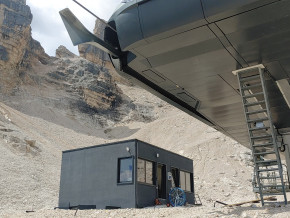
unibz forscht an technologischen Lösungen zur Erhaltung des Permafrostes in den Dolomiten
Wie kann brüchig gewordener Boden in den Dolomiten gekühlt und damit gesichert werden? Am Samstag, den 9. September fand in Cortina d'Ampezzo an der Bergstation der Sesselbahn Pian Ra Valles Bus Tofana die Präsentation des Projekts „Rescue Permafrost " statt. Ein Projekt, das in Zusammenarbeit mit Fachleuten für nachhaltiges Design, darunter einem Forschungsteam für Umweltphysik der unibz, entwickelt wurde. Das gemeinsame Ziel: das gefährliche Auftauen des Permafrosts zu verhindern, ein Phänomen, das aufgrund des globalen Klimawandels immer öfter auftritt. Die Freie Universität Bozen hat nun im Rahmen des Forschungsprojekts eine erste dynamische Analyse der Auswirkungen einer technologischen Lösung zur Kühlung der Bodentemperatur durchgeführt.
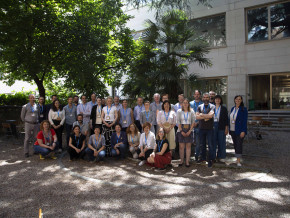
Gesunde Böden dank Partizipation der Bevölkerung: unibz koordiniert Citizen-Science-Projekt ECHO
Die Citizen-Science-Initiative „ECHO - Engaging Citizens in soil science: the road to Healthier Soils" zielt darauf ab, das Wissen und das Bewusstsein der EU-Bürger:innen für die Bodengesundheit über deren aktive Einbeziehung in das Projekt zu verbessern. Mit 16 Teilnehmern aus ganz Europa - 10 führenden Universitäten und Forschungszentren, 4 KMU und 2 Stiftungen - wird ECHO 16.500 Standorte in verschiedenen klimatischen und biogeografischen Regionen bewerten, um seine ehrgeizigen Ziele zu erreichen.
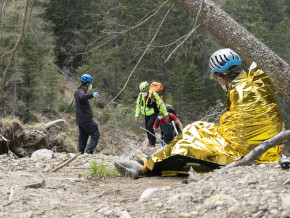
Erstversorgung: Drohnen machen den Unterschied
Die Ergebnisse einer Studie von Eurac Research und der Bergrettung Südtirol liegen vor.
